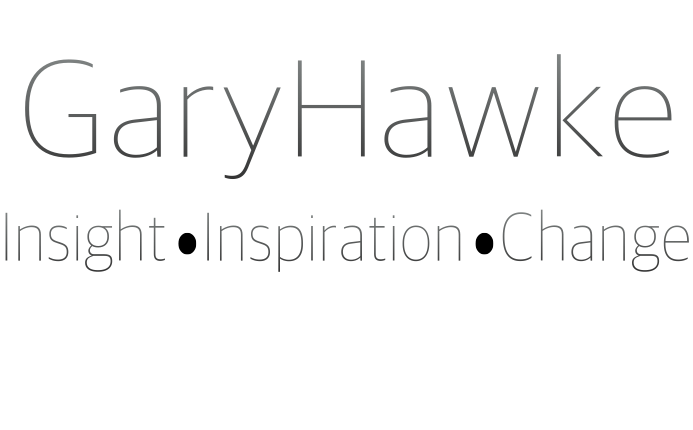The Academic Stuff
 Professor Robert Kegan of Harvard University has shown through detailed research into human development and change, that although we see change as the “letting go of something”, we also have an immunity to change. This comes about not only through a fear of letting go of what we know, but also through the brain’s need to keep up homeostasis, even if this stasis is providing an emotional, mental, or physical state of dis-ease.
Professor Robert Kegan of Harvard University has shown through detailed research into human development and change, that although we see change as the “letting go of something”, we also have an immunity to change. This comes about not only through a fear of letting go of what we know, but also through the brain’s need to keep up homeostasis, even if this stasis is providing an emotional, mental, or physical state of dis-ease.
Professor Alan Norrie of The University of Warwick in his book Dialectics and Difference – Dialectical Critical Realism and the Grounds for Justice, notes Professor Roy Bhaskar’s Critical Realism philosophy explores the importance of recognising change as a letting go or an absenting of any ills which are blocking our capacity for transformation. Along with being aware of the kind of things that are absent in our understanding of how change needs to take place. He also points to the importance of not seeing the act of doing something different as an act of change.
Which is a point also taken up by Watzlawick, Weakland, and Fisch in their book Change: Principles of Problem Formation and Problem Resolution, doing something difference does not lead to change because difference is only a re-interpretation of the thing we would like to change. As an example from Ken Wilber’s Integral Theory model, difference is the process of translation; we translate a languages trying our best to keep the meaning, structure, and understanding as close to the original language as possible.
Alternatively, we decided to lose weight by replacing the high calorie food we eat with different low-calorie versions. Finding although we lost weight, we are not able to sustain the low-calorie diet. We have not considered how we need to change our behaviours so that we burn off the calories as energy or we learn to change our relationship to food.
Change then is a transformation or evolution where we let go of feelings, behaviours, or relationships, that no longer support our well-being. However, change is difficult, and without a strong supportive change framework in place we can as find as much as we try to change we are right back where we started.
Dr Ruth Richards author of “Everyday Creativity and New Views of Human Nature: Psychological, Social and Spiritual Perspectives” described the supportive process as accessing our everyday creatively. Richards has shown that the power to recognise that we are creative provides a type of empowerment, that Abraham Maslow called “self-actualizing creativity” which leads to a way of life that is healthy, open, more evolved, and attuned to what he called Being Values (e.g., truth, justice, beauty) rather than Deficiency Needs of the self-concerned person.
Critical Realist Dr Lee Martin of The University of Nottingham proposes that creativity is not the act of producing something, leading to people being described as a creative type. He suggests that creative is an element of what it means to be human whether we enter into the act of creativity or not. We all have access to creativity as a power that has effect and affect. From making a cup of tea to painting a masterpiece.
Working with Gary, he aims to unlock and free your creative effect which is then used as a powerful tool in making change happen.
 Gary takes the creative tools of the actor and through a sensitively held therapeutic space utilises the tools to help enhance your creativity. At one level, there is an invitation to explore your creative expressive self, which leads to a growing confidence in presenting yourself.
Gary takes the creative tools of the actor and through a sensitively held therapeutic space utilises the tools to help enhance your creativity. At one level, there is an invitation to explore your creative expressive self, which leads to a growing confidence in presenting yourself.
At a deeper level, Gary supports you in exploring your creativity to unearth and bring more light to areas of your psyche, or following Jung, the shadow, in which you will find your power to fully embrace all that you are.
Leading to a letting go of what is holding you back in fully embracing change, allowing you to expand and transform as a person moving forward towards your life goals and feeling more at peace within yourself.
“Gary Hawke combines three unusual abilities. He thoroughly understands critical realism, a complex philosophy that confuses many academics, and he has worked closely with the founder Prof Roy Bhaskar. Second, he can explain critical realism in very clear terms to people working in a wide range of professions and disciplines. Third, Gary works well with them all on practical understanding of how they may apply critical realism in their teaching, research or other work concerned with transformative change. Gary and I have co-convened regular seminars on critical realism since 2014 and I am always impressed by his excellent teaching, as well as his all-round skills in organising the sessions.”
Priscilla Alderson PhD, Professor of Childhood Studies, University College London.
